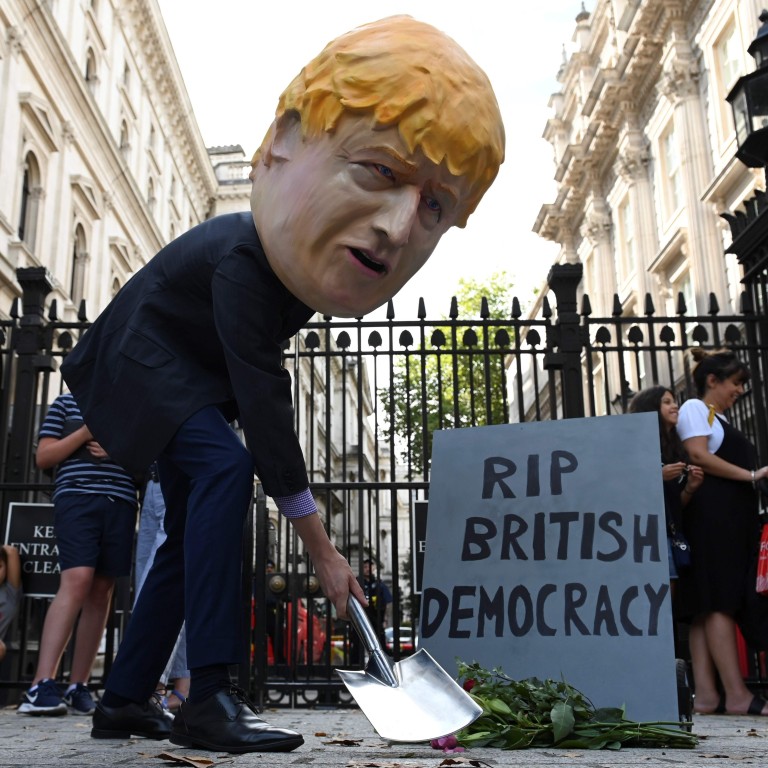
Ploy by Boris Johnson raises risk of Brexit pain
- Britain’s prime minister has caused outrage with his move to suspend parliament in an attempt to leave the European Union without a deal
Is UK democracy dead? Johnson’s critics cry ‘coup’ at Brexit gambit
If it were not for the Brexit crisis, Johnson’s justification for his action would be plausible. The current parliamentary session has lasted more than two years, longer than usual. The government is entitled to take a break and to lay out its legislative agenda in the Queen’s Speech. The reality, however, is that the move will limit the time for MPs to find a way of stopping any attempt by Johnson to leave the EU without a deal. His announcement came after lawmakers opposing a no-deal Brexit had agreed on plans to pass legislation to prevent it. The move, therefore, is widely seen as a cynical ploy to prevent parliament blocking the government’s plans.
Johnson was elected by members of his Conservative Party. He has not faced the public in a general election, although that seems likely in the near future. No matter how determined he is to secure Brexit by the deadline, he should respect parliament and its elected MPs. Sovereignty lies with parliament, not the government.
MPs opposing a no-deal Brexit will now scramble to see if they can pass legislation to block it next week, before the suspension begins. It is not clear whether they will succeed. What is clear, however, is that Britain needs cool heads and concerted efforts to secure a deal with the EU which parliament will approve, even if that requires more time. This is a critical period in the Brexit process. Johnson’s suspension of parliament raises the stakes and increases the risk of the most damaging outcome – leaving the EU without a deal.

